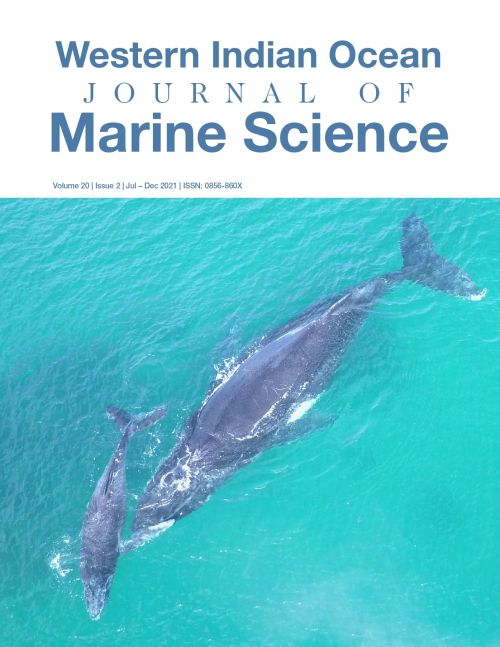Main Article Content
Carbon dynamics and sequestration by urban mangrove forests of Dar es Salaam, Tanzania
Abstract
This study intended to 1) determine spatial and temporal changes of mangrove forests, 2) identify drivers of mangrove deforestation and forest degradation, 3) determine historical carbon storage, sequestration and deforestation emissions by mangrove forests, and 4) determine whether mangrove forests are a source or sink of CO2 in Dar es Salaam, Tanzania. Mangrove forests have decreased from 4,813 hectares in 1986 to 1961 hectares in 2016. The following were prominent drivers of deforestation in descending order: clearing mangrove forests for salt pans; hotel construction; settlement; and charcoal making. Tree removals for firewood and building poles were also prominent drivers of mangrove forest degradation. Similarly, carbon stored in mangrove forests has decreased from 1,131,055 tonnes CO2e in 1986 to 460,835 tonnes CO2e in 2016. Sequestration of CO2 by mangrove forests is estimated at 133,516 (1986-1995); 106,110 (1995-2006) and 69,616 (2006-2016) tonnes CO2e year-1. Conversely, mangrove deforestation has resulted in emissions of about 27,400, 16,500 and 24,000 tonnes CO2e year-1 in 1986-1995, 1995- 2006 and 2006-2016, respectively. Urban mangrove forests play an important environmental role in mitigating climate change and amelioration of local weather through the large carbon stocks they store and sequester. Mangrove forests in the study area remain a net carbon sink, however, the sink role played by mangrove forests in the study area is decreasing rapidly. The declining spatial and temporal trends of urban mangrove forest cover has resulted in a systematic decrease in the total carbon stored and sequestered by mangrove forests. In the absence of timely measures of preserving and rehabilitating degraded mangrove areas, the mangrove forests of Dar es Salaam may become the source of CO2. The study recommends effective urban land use planning and effective law enforcement to ensure a win-win situation through sustained ecosystem services offered by urban mangrove forests to support economic growth.






